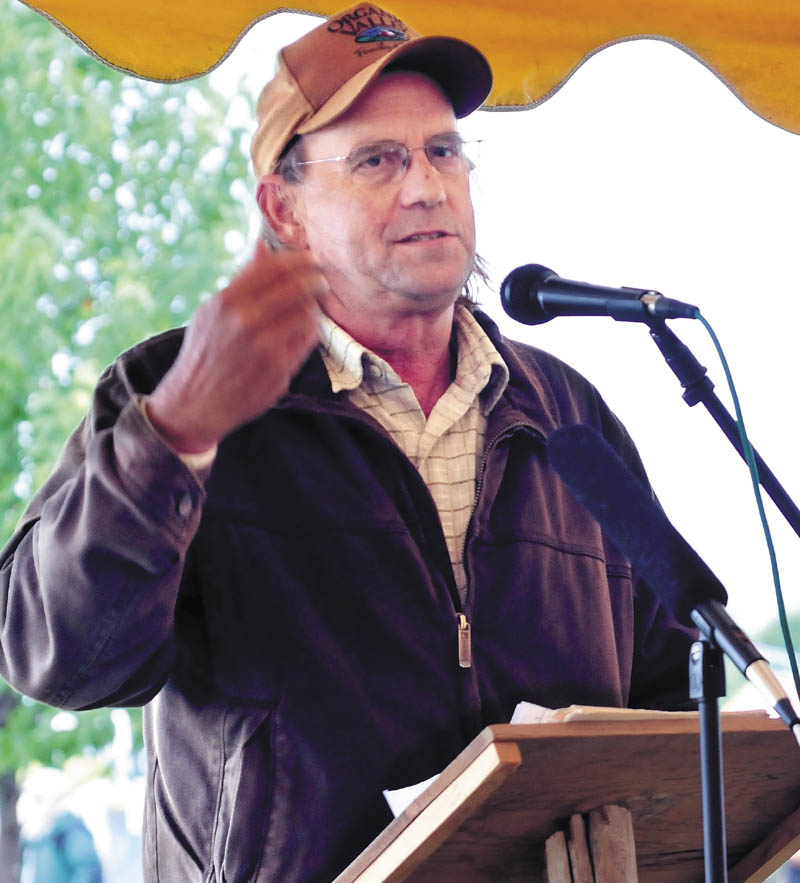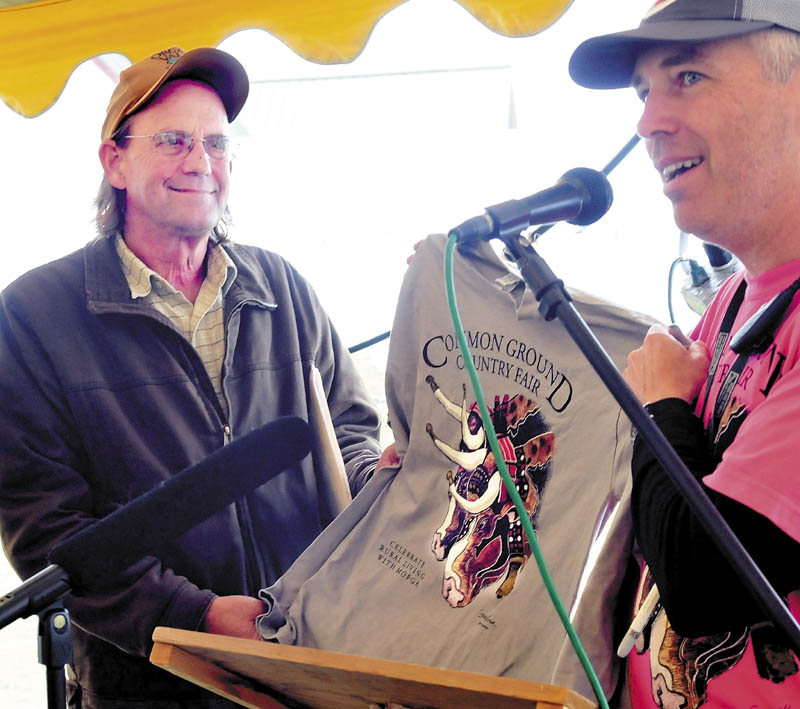UNITY — For George Siemon, a cooperative is more than a business model. It’s about staying true to a mission and getting people to work together, principles that can translate to great accomplishments.
“It’s about having dreams and people trying to solve their own problems. When our cooperative started, we didn’t know we would succeed, but we knew we wanted to try and do something different. We had a vision of having an organization that treated farmers fairly, and that was so important,” said Siemon, co-founder and chief executive officer of Organic Valley, a farmer-owned cooperative that includes 1,834 farms in 35 states.
Today, Siemon, 60, gave the keynote address at the Common Ground Country Fair’s final day, where a rain-soaked audience gathered to hear Siemon speak on the benefits of cooperatives, businesses owned and controlled by the people who use them.
According to the National Council of Farmer Cooperatives, there are estimated to be more than 400,000 cooperatives in the United States, which account for as many as 300,000 jobs and a total payroll of more than $8 billion.
Siemon, who spoke on the benefits of the co-op model, said it is unique for a couple reasons.
“It’s really different because it’s here to serve a community. Usually that community is the group that is the largest stakeholder. In our case it is the farmers,” he said.
Other corporations usually exist for a valuation, the estimated worth of the company often measured through its return on dividends, said Siemon. In a co-op, valuation is the last thing talked about, he said. Instead, the focus is on how to serve the stakeholders and their mission, rather than on attracting investors, he said.
Because the co-op is dependent on collective action, the culture of the organization is very important, said Siemon. It is important to build unity among members, even if they are spread across the country, he said.
Last year Organic Valley organized a tour for member farmers and employees to travel to farms in different parts of the country to understand agriculture in that region. The tour, known as the Tour of Regional Understanding, kicked off for the second time today at the fair, with more than 50 farmers participating, said Siemon. The farmers will travel to New York, Vermont and Pennsylvania as well as Maine, he said, to gain perspectives on agriculture in the region.
Doug Hartkopf, an Organic Valley member who owns Hart to Hart Farm in Albion with his wife, Linda, said that being part of the co-op means talking with farmers around the country about the challenges they may be facing. It could be the price of hay or the need for irrigation in the west, he said. Even if the issue is not something facing farmers in Maine, members have an understanding that the success of other members will benefit the cooperative as a whole, he said.
“We’re all trying to work together so it’s important to understand each other,” said Hartkopf.
Like any business, Siemon said cooperatives are dependent on consumers, many of whom have developed preferences for organic dairy and food, one thing that has allowed Organic Valley to grow.
He said that he would like to see co-ops, which currently make up only about one percent of businesses in the United States, play a bigger role in the economy. For Organic Valley, the mission to provide organics at a sustainable price that allows family farms to survive is what has driven their success and will continue to do so in the future, he said.
“All the differences disappear when people are working for a common vision. We have a great diversity of people who have made something happen that we never thought could. It doesn’t matter where you’re from, it matters that you’re serving something outside yourself,” said Siemon.
Rachel Ohm — 612-2368
rohm@mainetoday.com
Send questions/comments to the editors.





Success. Please wait for the page to reload. If the page does not reload within 5 seconds, please refresh the page.
Enter your email and password to access comments.
Hi, to comment on stories you must . This profile is in addition to your subscription and website login.
Already have a commenting profile? .
Invalid username/password.
Please check your email to confirm and complete your registration.
Only subscribers are eligible to post comments. Please subscribe or login first for digital access. Here’s why.
Use the form below to reset your password. When you've submitted your account email, we will send an email with a reset code.